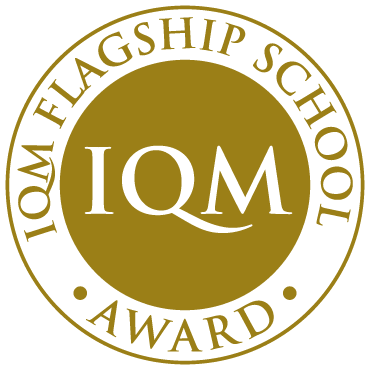Mathematics
Mathematics is critical in helping us to understand and change the World. It plays a vital role in many aspects of life. Mathematics provides a broad range of skills in problem solving, logical reasoning and flexible thinking.
At Babington Academy, we have recently redesigned our Key Stage 3 schemes of learning to reflect the new National Curriculum for Mathematics. Our schemes of learning are intended to develop the skills set out in the National Curriculum as well as to nurture a sense of curiosity about mathematics.
Aims and Objectives
Aims:
- To set challenging targets with high expectations of all students.
- To offer a variety of approaches to teaching and learning to engage and motivate students and demand their active participation.
- To smooth the transition for students between Key Stages and ensure progression in teaching and learning throughout their time at BCC.
- To explore enrichment opportunities outside the curriculum to enhance students’ enjoyment of mathematics.
- To ensure all students leave numerate and with a qualification in mathematics
In addition to these aims, we have built in opportunities for students to:
- Develop fluency - Through mathematics lessons and specifically designed activities, students are given the opportunity to develop fluency in performing key mathematical skills so they become second nature.
- Reason Mathematically - Students are given opportunities to think logically and flexibly to develop sound mathematical arguments.
- Solve problems - Students’ ability to solve problems is nurtured during lessons through exposure to a variety of strategies and modelling of good practice.
At the end of their mathematical education in this school, we expect students to:
- Perform basic numeracy skills fluently
- Perform basic mathematical skills needed in his/her chosen career or for entry to higher or further mathematical education
- Understand the mathematics likely to be encountered in daily life
- Reason clearly and logically, and to set out rational arguments
- Identify patterns encountered in diverse situations and to make inferences from these
- Approach problems systematically and choose appropriate techniques for their solution
- Experience satisfaction in and enjoyment of mathematical experiences and achievements
Topics studied at KS3
Number and algebra
- Place value
- Negative numbers
- Vocabulary
- BODMAS / BIDMAS
- Written methods for calculations
- Powers and roots
- Equivalence of Fractions, Decimals and Percentages
- Work with percentages
- Round numbers
- Estimation and approximation
Algebra
| 1. Understand algebraic notation | 5. Solve equations |
| 2. Substitute values into formulae | 6. Sketch linear and quadratic graphs |
| 3. Simplify and manipulate algebraic expressions | 7. Understand properties of graphs |
| 4. Change the subject of formulae | 8. Work with sequences |
Ratio, proportion and rates of change
| 1. Change between units | 4. Work with ratio |
| 2. Use scale factors in a variety of situations | 5. Work with percentages |
| 3. Work with fractions | 6. Solve problems involving direct and inverse proportion |
Geometry and measures
| 1. Find area, perimeter and volume of shapes and solve associated problems | 5. Understand congruence and similarity |
| 2. Understand and use angle properties | 6. Perform and describe transformations |
| 3. Derive and use standard constructions | 7. Understand and use Pythagoras Theorem |
| 4. Recognise and use properties of polygons | 8. Understand and use trigonometry |
Probability
| 1. Understand experimental and theoretical probabilities | 4. Understand that the probability of outcomes sum to 1 |
| 2. Understand the probability scale | 5. Organise sets of data systematically using tables and Venn diagrams |
| 3. Understand the language associated with probability | 6. Understand and use sample space diagrams |
Statistics
| 1. Construct and interpret appropriate graphs | 3. Construct and interpret scatter diagrams |
| 2. Find and use averages |
Assessment & Personalised Learning
We regularly assess students against the assessment criteria relevant to their ability and schemes of learning are planned to ensure progression for all individuals. We use Assessing Pupils Progress (APP) to enable us to build a clear profile of the individual strengths and weaknesses of each student. Feedback to students on how to progress is therefore personalised to meet their individual needs.
Although students are organised in ability sets, there can still be a wide range of ability in the class. We aim to:
- Establish a classroom climate where all students feel that they can contribute and which secures their motivation and concentration
- Adapt teaching strategies to keep all students suitably challenged
- Provide appropriate support, aids or interventions to give particular students access to the planned programme and to keep any who might fall behind in step with the rest of their class.
Strategies are quickly put into place after careful analysis of assessment data to aid progression. Examples of strategies include:
- Questioning – targeting individuals or groups, open questions, encouraging students to explain strategies and methods to each other
- Teaching focused at times on individuals/groups while others work independently.
- Targeting teacher’s own support or the support of additional adults in the classroom.
- Providing resources to support particular students especially those who need more support or who need more of a challenge
- Open-ended tasks – investigations and problem solving activities which aim to mirror real life situations
- Individual or small group withdrawal with a qualified mathematics teaching assistant or mathematics tutor for students who require more personalised support
- After school sessions, especially those who are close to exams
Topics studied at KS4
Number and algebra
| Working with numbers and the number system | The language of algebra |
| Fractions, decimals and percentages | Expressions and equations |
| Ratio and proportion | Sequences, functions and graphs |
Geometry and measures
| Properties of angles and shapes | Area, perimeter and volume |
| Geometrical reasoning and calculation | Vectors |
| Measures and construction |
Statistics and probability
| The data handling cycle | Data interpretation |
| Data collection | Probability |
| Data presentation and analysis |
AQA GCSE Mathematics
- Students will be entered for either Foundation tier or Higher tier
- Students will sit 3 papers:
Further information can be found here.
AQA GCSE Statistics (For some students)
- Students in KS4 all study for the GCSE Mathematics qualification with the AQA exam board.
- All students are entered for their GCSE exam at the end of year 11.
- As the GCSE Mathematics syllabus is changing with a greater emphasis on problem solving we have adapted our schemes of learning to reflect this.
Trips, Visits & Opportunities
Maths trips have included visits to:
- Puzzle days
- UK Maths Challenge
- Leicester Outdoor Pursuits Centre
- Revision conference at Leicester University
- Enrichment workshops
- Catch-up numeracy at Leicester City Football Club
Supporting your Child in Maths
- Encourage them to use any revision guides or CD-ROMs they may have been issued with
- Encourage them to use www.mymaths.co.uk website
- Check through their homework with them after they have completed it
- Encourage them to talk through how they go about solving problems
- Highlight the relevance of maths in the real world e.g. measurements in cooking, money calculations, distances, estimations
- Practice times tables with them and addition and subtraction skills
How you can help your child with homework in Mathematics
All students have access at school and at home to the subscribed website:
(Login: Babington, Password: multiply)
The website contains tutorials and worksheets on all mathematics topics.
Students are also encouraged to use the games based website www.Sumdog.com, which is aimed at improving the number skills of young people. Students have been issued with an individual login for this website (if your child has forgotten this, please ask them to see their mathematics teacher)







 ↑
↑


